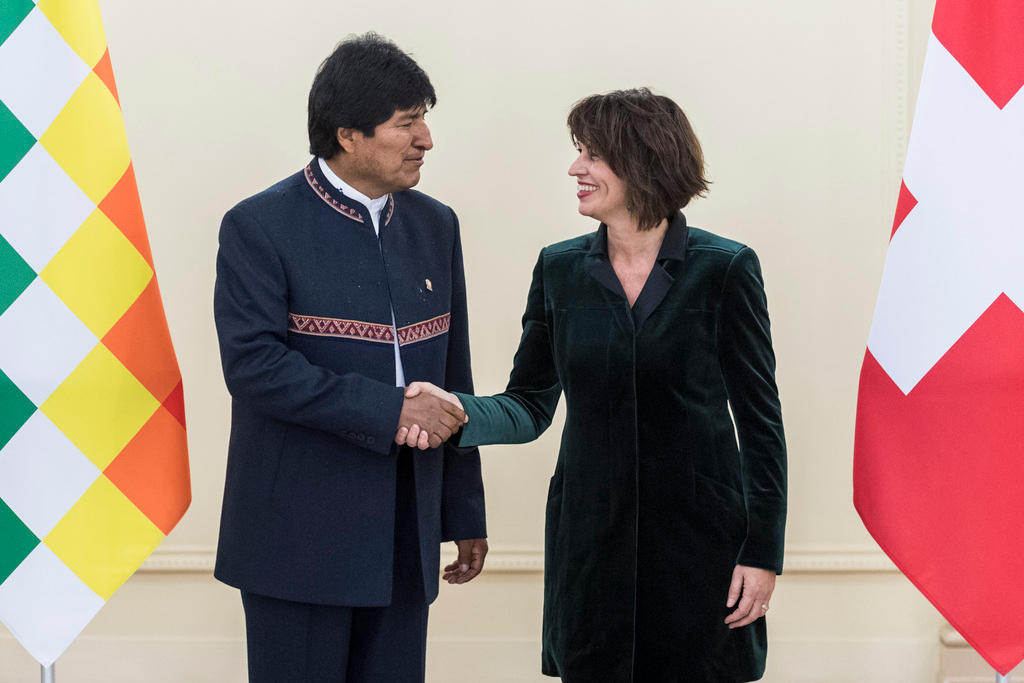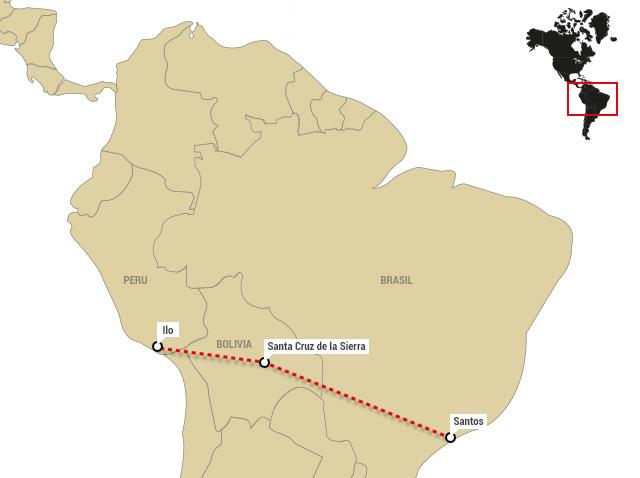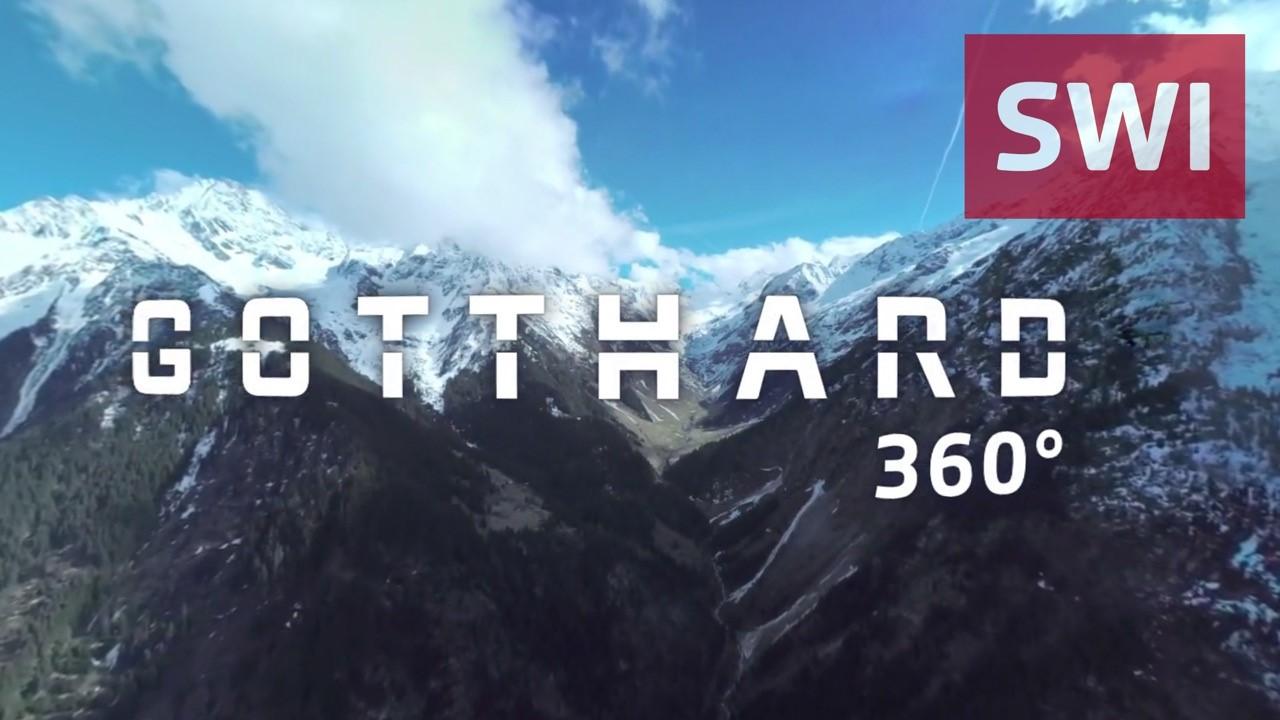Morales turns to Switzerland for railway expertise

Switzerland has signed a memorandum of understanding with Bolivia to offer technical advice and to support firms interested in participating in what Bolivian President Evo Morales calls the “project of the century”: the Bi-Oceanic Central railway (CFBC) in South America.
Morales was in Bern on Thursday to talk about the project, in what was only the second official state visit of a Bolivian leader after Jaime Paz Zamora in 1993.
Morales updated Swiss President Doris Leuthard on the plan to build a new rail link between the Atlantic and Pacific Oceans; a 3,755-kilometre-long line to transport passengers and freight between the port of Santos, in Brazil, and Ilo, in Peru. The endeavour will cost up to $15 billion (CHF14.8 billion).
The Latin American leader believes the project is strategically vital for the development of Bolivia, which is among the continent’s poorest countries. But it also has wider geopolitical consequences. Brazil – which signed in early December a memorandum of understanding with Bolivia to set the CFBC rolling – would benefit greatly from an alternative land route towards its key export market of China. Peru has also signalled support.
China, however, a big consumer of the region’s resources, has other ideas. It has proposed a competing project, a 4,800-kilometre-railroad through the Brazilian Amazon and Peru, which would bypass Bolivia.
Securing financing
Now adding to the support of the Bolivian-led project are Switzerland and Germany. The latter signed in March a declaration of intent with Bolivia, while on Wednesday in Bern, various businesses specialising in rail transport also met to express their interest in making a reality the “21st century’s Panama Canal”.
“We have studied this case from the start,” said one rail system expert, Swiss engineer Michele Molinari, whose Winterthur-based Molinari Rail already operates a project in Cochabamba, Bolivia. “We have shown our capacity to supply high-quality rail technology that can stand up to the demands and competition of the global market.”

His Cochabamba project – which he carried out along with Spanish company Joca – has also acted as an access point to the Bolivian market for other Swiss companies including Lombardy engineering, railway assessment firm Amberg, track specialist Schwihag, signalling company Bär Bahnsicherung, communications group ErvoCom, and the constructor of carriages and locomotives Stadler Rail.
In total, over 30 rail companies from Switzerland and Germany are hoping to win a chunk of the project, which is why Morales and the Swiss government have been keen to cement a declaration of intent.
The memorandum of understanding will act to support planners’ negotiations with banks and insurance companies. The Swiss companies involved in the rail industry are thus hoping that the contract will help them to finance the project.
“To incentivise a company to participate, financial guarantees are necessary, which means securing a consortium of international banks,” Senator Olivier Français told Swiss public radio, RTS. “But it’s also necessary to get local banks from the countries involved to solidify the financing.”
Switzerland: model railway
Of course, another reason Switzerland is such an attractive model for the Bolivian project is its geography: both countries are topographically hostile, with high mountains and low valleys alternating throughout, and Swiss expertise is vital. Stadler Rail, for example, boasts the world’s most powerful cog system for funicular rail lines; while the famous Gotthard is the longest train tunnel in the world.
“In Switzerland, we have vast experience with mountain trains, and this can provide efficient solutions for the characteristics of the Bolivian geography, with many descents and ascents, especially along the section that beings near Santa Cruz (416 metres above sea level) towards Cochabamba (over 3,000 metres) and back down again to the port of Ilo, in Peru,” said Molinari.
Adapted from Spanish by Domhnall O’Sullivan, swissinfo.ch

In compliance with the JTI standards
More: SWI swissinfo.ch certified by the Journalism Trust Initiative













You can find an overview of ongoing debates with our journalists here . Please join us!
If you want to start a conversation about a topic raised in this article or want to report factual errors, email us at english@swissinfo.ch.